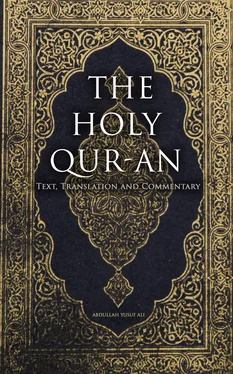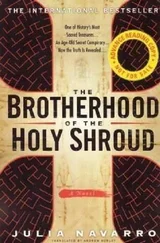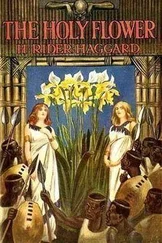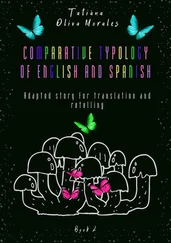Ignorance and hatred, despair and unbelief
Poisoned his life, and he saw shapes of evil
In the physical, moral, and spiritual world,
And in himself.
C. 4.—Then did his soul rise against himself,
And his self·discord made discord between kith and kin:
Men began to fear the strong and oppress the weak,
To boast in prosperity, and curse in adversity,
And to flee each other, pursuing phantoms,
For the truth and reality of Unity
Was gone from their minds.
C. 5.—When men spread themselves over the earth,
And became many nations,
Speaking diverse languages,
And observing diverse customs and laws;
The evils became multiplied,
As one race or nation
Became alienated from another.
The Brotherhood of Man was now doubly forgotten,—
Firstly, between individuals, and secondly, between nations.
Arrogance, selfishness, and untruth
Were sown and reaped in larger fields;
And Peace, Faith, Love and Justice
Were obscured over masses of men,
As large tracts of land are starved
Of sunshine by clouds Boating far on high.
C. 6.—But God in His infinite mercy and love,
Who forgives and guides individuals and nations,
And turns to good even what seems to us evil,
Never forsakes the struggling soul that turns to Him,
Nor the groups of men and women
Who join together to obey His Will and Law
And strengthen each other in unity and truth,
Nor the Nations that dwell
In mountain or valley, heat or cold,
In regions fertile or arid,
In societies that roam over land or seas,
Or hunt, or tend flocks, or till the soil,
Or seek the seas for food or oil or fat or gems,
Or dig out from the bowels of the earth
Precious stones or metals or stored-up heat and energy,
Or practise arts and crafts, or produce abundant wealth
By machines of ingenious workmanship,
Or live a frugal life of contemplation:
For all are children of One God,
And share His loving care
And must be brought within the pale
Of His eternal unity and harmony.
The light of His Revelation
C. 7.—And so this light of eternal Unity
Has shone in all ages and among all nations,
Through chosen Apostles of God, who came
As men to dwell among men,
To share their joys and sorrows,
To suffer for them and with them,—
Aye, and to suffer more than falls
To ordinary mortal lot,-
That so their message and their life
Might fufil the eternal
And unchanging purpose of the Most High,-—
To lead man to his noblest destiny.
C. 8.—Ever this eternal light of Unity,
This mystic light of God's own Will,
Has shone and shines with undiminished splendour.
The names of many Messengers are inscribed
In the records of many nations and many tongues,
And many were the forms in which their message was delivered,
According to the needs of the times and the understanding of the people;
And manifold were the lives of the Messengers,
And manifold also was the response of their people;
But they all witnessed to the One Truth:
Of God's unity, might, grace and love.
C. 9.—As the records of man are imperfect,
And the memory of man unstable:
The names of many of these messengers
Are known in one place and not in another,
Or among one people and not among others;
And some of their names may have perished utterly;
But their message stands one and indivisible,
Even though it may have been forgotten,
Or twisted by ignorance, error, superstition or perversity;
Or misunderstood in the blinding light
Or time or tortuous Circumstance.
C. 10.—Many were the faiths in the composite world
Of Western Asia, Northern Africa, and Europe,
And many were the fragments of ancient wisdom,
Saved, transformed, renewed or mingled;
And many new streams of wisdom were poured through the crucibles
Of noble minds,—prophets, poets, preachers,
Philosophers, and thinking men of action;
And many were the conflicts, and many
The noble attempts reaching out towards Unity,
And many were the subtle influences
Interchanged with the other worlds
Of further and Eastern Asia,-
Aye, and perchance with the scattered Isles
Of the Pacific and the world between
The Atlantic and the Pacific.
C. 11.—At length came the time when the Voice of Unity
Should speak and declare to the People,
Without the need of Priests or Priest-craft,
Without miracles save those that happen
Now and always in the spiritual world,
Without mystery, save those mysteries
Which unfold themselves in the growing
Inner experience of man and his vision of God,—
To declare with unfaltering voice
The Unity of God, the Brotherhood of Man,
And Grace and Mercy, Bounty and Love,
Poured out in unstinted measure for ever and ever.
C. 12.—And this great healing light shone
Among a people steeped in ignorance,
Brave and free, but without cohesion or union,
Simple and rude, but with an easy familiarity with Nature,
Accustomed to Nature’s hardships and her rugged resistance to man,
But dreaming of the delights of gardens and fruitful fields,
Cruel, yet with a rough sense of equality,
And wielding a tongue, flexible, beautiful,
And able to respond, with brevity and eloquence,
To the sublimest thoughts which man could conceive,
C. 13.—Who were lit to be vehicles of this light?—
Not men intoxicated with words and mysteries,
Men whom politics had debauched or tyranny had subdued,
Men whose refinement had ended in vices,
Who saw Nature only through books or artificial conceits,
Or in moods which bred softness, indolence, or luxury,
Who spoke of love and justice, but practised
Gross selfishness between class and class,
Sex and sex, condition and condition;
And had perverted their language, once beautiful,
Into jargons of empty elegance and unmeaning futility.
C. 14.—For the glory of Hellas, and her freedom and wisdom had departed;
Rome’s great systems of law, organization and universal citizenship
Had sunk into the mire of ecclesiastical formalism,
And dogmatism, and exclusive arrogance;
The living fire of Persia’s Prophet scarce smouldered
In her votaries of luxury;
In India, countless castes and kingdoms
Cancelled the unity of Buddha’s teaching;
The wounds of China had not yet been healed by T'ang culture;
And Japan was still a disciple of China.
C. 15.—Then in the sacred city of pagan Arabia,
Shone a light that spread in all directions.
It was centrally placed for the bounds of the world
Of men’s habitations in Asia, Europe, and Africa.
It made the Arabs the leading nation of culture and science,
Of organized enterprise, law, and arts,
With a zeal for the conquest of Nature and her mysteries.
C. 16.—Behold! There was born into the world of sense
The unlettered Apostle, the comely child,
Noble of birth, but nobler still
In the grace and wisdom of human love
And human understanding; dowered with the key
Which opened to him the enchanted palace
Of nature; marked out to receive—
To receive and preach in burning words
The spiritual truth and message of the Most High.
C. 17.—Others before him had been born
In darkness, beyond the reach
Of history; others again it pleased God
Читать дальше












